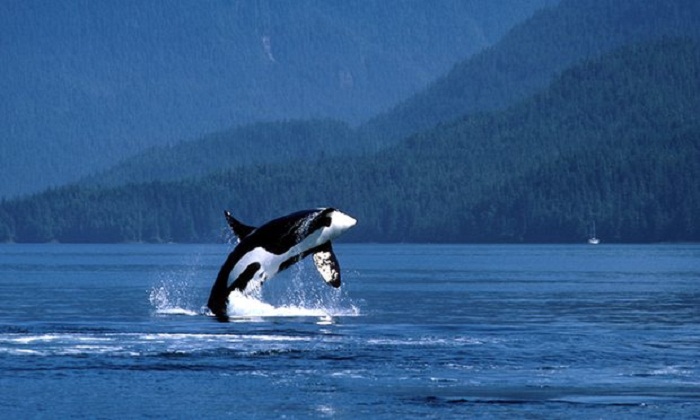“With regret we now consider her deceased,” researcher Ken Balcomb, who has studied the population for four decades, wrote in a post on the group’s website on Saturday. He had last seen Granny leading her pod north through the Haro Strait as they searched for food.
In recent years researchers had observed Granny take the helm of the J-pod, one of three family groups that make up the Southern Resident Killer Whale population – a genetically unique population of some 80 or so orcas that is classified as endangered in both Canada and the US.
Easily recognisable by a half-moon nick on her dorsal fin, Granny was first identified by researchers in the 1970s. It was later estimated she had been born in 1911 – one year before the Titanic sank – with a 12-year margin of error.
Her disappearance capped off a year that has been a challenging one for the orcas of the Salish sea, with six other whales from the population reported missing or presumed dead by researchers. It was a contrast to one year earlier, in 2015, when the population welcomed eight newborn orcas.
The loss of Granny left Balcomb worried about the health of the pod going forward. “She kept on going like the Energizer Bunny,” he wrote. “Who will lead the pod into the future? Is there a future without food? What will the human leaders do?”
The population has long had a fraught relationship with its West Coast neighbours. In the late 1960s and early 70s, dozens of orcas were captured and sold to aquariums and theme parks around the world. Those who remained were exposed to runoff chemicals used in local industry, making them some of the world’s most contaminated marine mammals.
In recent years, the orcas’ struggle to survive has intensified amid dwindling salmon stocks and increasing vessel traffic through their waters. Researchers in Canada have also warned that plans for a pipeline project, recently approved by the Canadian government and that would send oil tanker and barge traffic soaring nearly sevenfold through the orcas’ habitat, could further threaten the population.
More about:
















































